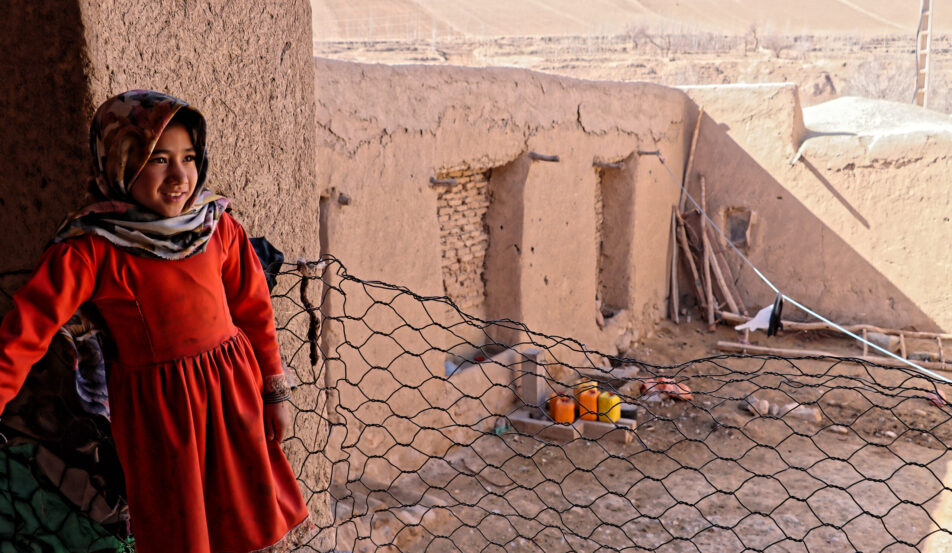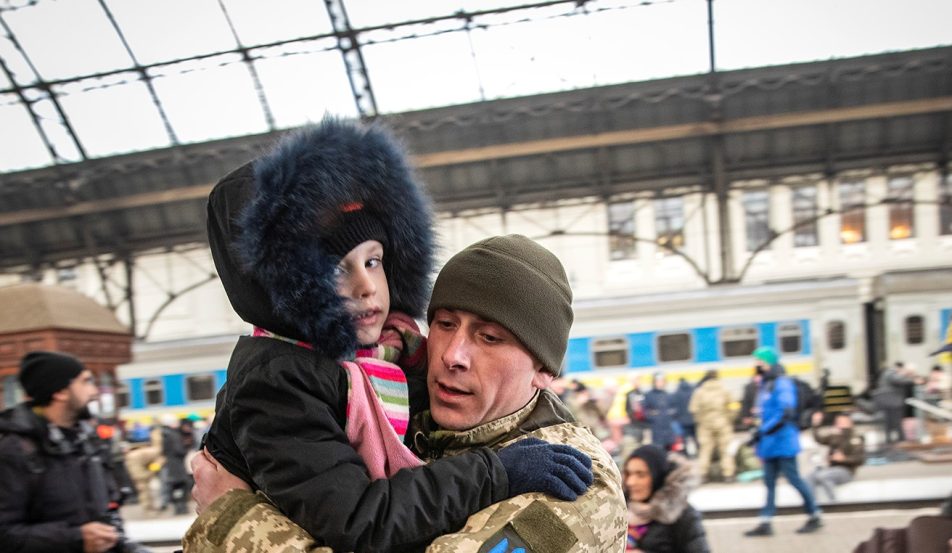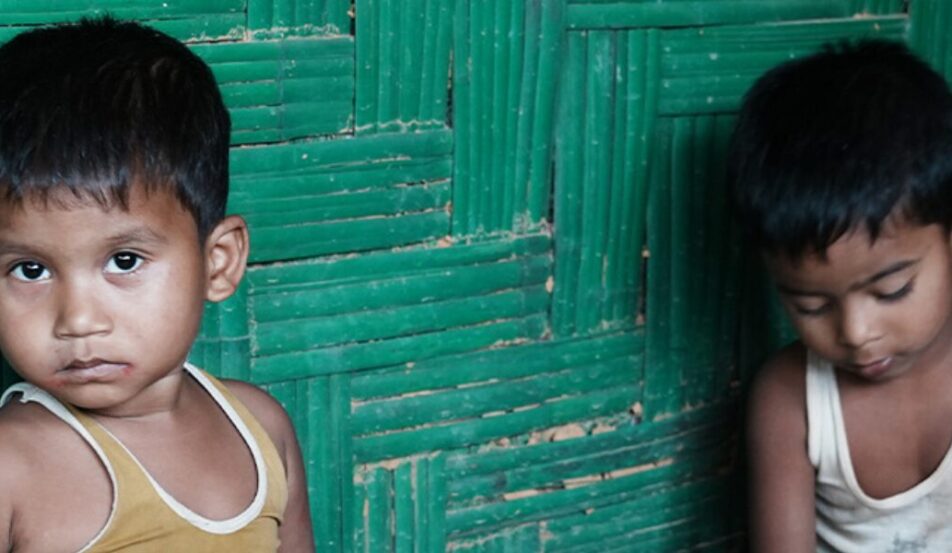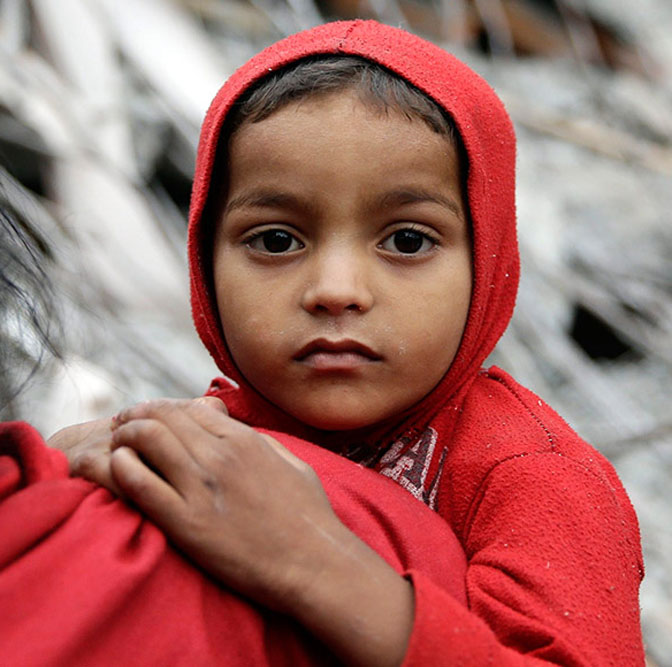Oksana is rebuilding her life – and helping others do the same
Today 20 June is World Refugee Day. As of 2022, there are an estimated 26.6 million refugees worldwide. Twelve million of these are children and young people. In the face of rising violence, 7 million Ukrainians have been forced to leave their homes, fleeing into neighbouring countries to find safety. Oksana is one of these 7 million: this is her story and how she is now working with ChildFund Alliance member WeWorld to help others like her.
At 6am on the morning of 24 February, 35-year-old Oksana woke up to the sound of loud blasts outside her home in Odessa, Ukraine. Her phone was ringing and she could hear explosions.
By 10am, Oksana and her 4-year-old son had gathered at a friend’s house with their families where they learned that Russia had launched airstrikes across Ukraine. While the adults were trying deciding what to do, the children played in the garden. Then they heard more explosions across the city and rushed the children inside and down to the basement. They had no choice but to flee to neighbouring Moldova less than 200kms away – hoping they would only be there for a few days.
Two days later, Oksana left Odessa with friends, her mother, her 4-year-old son and their cat. She left behind her father, many friends, her home and everything she knew. Her husband was working overseas when the conflict began. Unlike many Ukrainian men, he was fortunate enough to be able to join his family in Moldova weeks later.
Oksana found Moldova to be very peaceful. It is a small country of just over 4 million people. Many people speak Russian and it shares many cultural similarities to Ukraine. Despite this, Oksana knows it is not where she and her family want to live permanently. She doesn’t feel like Moldova is her home or her country.
This is a sentiment shared by many Ukrainian refugees who fled to Moldova in the wake of escalating violence. Many choose to stay in Moldova so they can return to Ukraine from time to time to check on their friends and family, with hopes of returning permanently one day.
Oksana has returned to Odessa four times to check on her father, her friends and her house. While returning from her first trip, she picked up three women and their children and drove to Moldova where they waited more than 17 hours to cross the border.
She says that Odessa is still relatively calm. Many people have stayed and continue to work – despite the uncertainty of what will happen next. She feels lucky because Odessa has not been bombed too heavily and people have had the opportunity to leave.
When they first arrived in Moldova, Oksana had a difficult time finding a kindergarten for her son. The public ones are overcrowded, with a wait time of at least eight months and all classes are taught in Moldovan.
Alternatively, private kindergartens are expensive with many charging up to 500 Euros per month – more than the average monthly salary in the country. Fortunately she managed to find an affordable private kindergarten taught in a three-bedroom apartment. For her son, like many other children who have left Ukraine, it has been difficult to learn in a different language.
With all the costs of settling in a new country, Oksana went in search for financial and resettlement support for Ukrainian refugees. Here she learned about distribution centres WeWorld had set up to support Ukrainian children and their families who had been forced to leave their homes. She took her son and went to visit one of these centres to learn more about what activities and support they provide.
As soon as she got there, her son started playing with other Ukrainian children and he didn’t want to leave. Seeing him enjoying himself encouraged Oksana to do the same. She began to speak with other mothers and staff from WeWorld. She met WeWorld’s Country Representative in Moldova and the Head of International Programs, and ended up accepting a job as WeWorld’s Administration and Communications Officer.
Now she works in the distribution centres with other volunteers and WeWorld staff.
“When we meet other Ukrainians, we don’t say hello, we directly ask “how are you”? The people that have arrived here in the past months need help, they have no strength left. If I hadn’t met WeWorld’s staff I wouldn’t have worked here and this job is what gave me the mental strength to keep on going,” said Oksana.
“Understanding that we are not alone in our pain, that other people understand our sorrow and support us, it’s a huge help and it gives us hope for tomorrow, even if we don’t know what it will hold for us. Maybe we’ll go to Canada but it’s a very big country and it’s still not ours.”
Over the last few months, Oksana has been thinking back to the Syrian conflict in 2011 – something that seemed so foreign and far away from her own life. But now she understands the devastation and upheaval that families and their communities experienced. Oksana and her family have also become refugees due to violence in their home country. Despite the ongoing violence, she is optimistic that she will be able to return back to her home country one day.


































